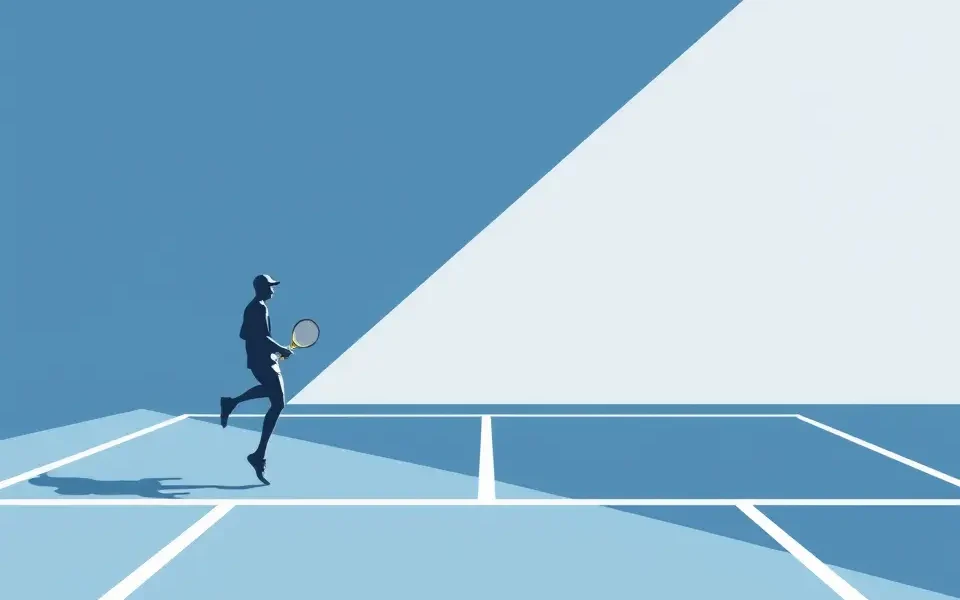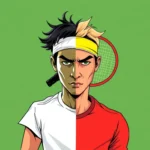Novak Djokovic’s recent withdrawal from the upcoming Italian Open has sent ripples through the tennis world, sparking debate and raising questions about the Serbian star’s strategy heading into the French Open. After an unexpected defeat at the Madrid Open, the 37-year-old’s decision to skip Rome, a tournament where he has historically thrived, has been labelled “very strange” by some of the sport’s most respected voices.
A Shocker in Rome: Djokovic’s Withdrawal Explained
On April 29, 2025, tournament organizers officially announced that Novak Djokovic would not participate in the Italian Open, scheduled to take place from May 7-18. The announcement, posted on the tournament’s official X account, simply stated, “Novak Djokovic has announced he won’t take part to #IBI25.” No specific reason was given for his withdrawal.
This decision came on the heels of a string of disappointing performances for Djokovic, including a second-round loss to world number 44, Matteo Arnaldi, at the Madrid Open. This defeat marked his third consecutive loss, following earlier exits at the Miami Open and Monte-Carlo Masters.
A Clay Court Conundrum: A Break From Tradition?
Djokovic’s absence from the Italian Open is particularly noteworthy given his impressive track record at the event. Since his debut in 2007, he has consistently participated in the Rome Masters, amassing six titles and a remarkable 68-12 win-loss record.
The Italian Open is generally considered a crucial warm-up tournament for the French Open, providing players with valuable match practice on clay courts. Djokovic’s decision to forgo this opportunity raises concerns about his preparation for Roland Garros, where he aims to secure a record-extending 25th Grand Slam title.
Voices From the Court: Experts Weigh In
The tennis world has been quick to react to Djokovic’s withdrawal, with many expressing surprise and concern.
Jim Courier, a former French Open champion, described the decision as “troubling and worrying.” Speaking on the Tennis Channel, Courier emphasized the importance of playing in Rome to prepare for Roland Garros, stating, “If you’re going to play one between Madrid and Rome, (then) Rome would be the one you would want to play to get ready for Roland-Garros.”
British tennis coach Jamie Delgado echoed this sentiment, noting that Djokovic “hasn’t looked like he’s been overly happy on the tennis court in the last couple of tournaments.”
A Champion’s Perspective: What’s Going Through Djokovic’s Mind?
Following his defeat in Madrid, Djokovic alluded to the challenges he’s currently facing, describing the situation as a “new reality.” He acknowledged the mental difficulty of dealing with early tournament exits, a feeling that has become increasingly unfamiliar to him after two decades of dominance.
Before the Madrid Open, Djokovic stated that his main focus was to peak at the French Open and Wimbledon. “The priority is obviously trying to take the level of tennis that currently is maybe not where we want it to be to the higher level, so that I can peak at the French Open,” he said.
It’s possible that Djokovic’s withdrawal from the Italian Open is a strategic decision aimed at preserving his energy and focusing on his preparations for Roland Garros. With the French Open just weeks away, he may feel that taking a break from competitive matches is the best way to recharge both physically and mentally.
The Road Ahead: What Does This Mean for the French Open?
Djokovic’s absence from the Italian Open leaves him with a significant lack of match practice on clay leading up to the French Open. If he chooses not to participate in any other warm-up tournaments, he will enter Roland Garros having played just two clay-court matches this season, without winning a single set on the surface.
This scenario raises questions about his chances of success in Paris. While Djokovic’s talent and experience are undeniable, the lack of match play could put him at a disadvantage against his rivals, particularly those who have been competing regularly on clay.
However, Djokovic has proven time and again that he is capable of overcoming adversity. His remarkable resilience and mental fortitude have allowed him to achieve unprecedented success throughout his career. It would be unwise to write him off, regardless of his recent struggles.
Alternative Strategies: Hamburg a Possibility?
With the Italian Open off the table, speculation has arisen regarding whether Djokovic will seek an alternative warm-up tournament before the French Open. One possibility is the Hamburg European Open, a tournament that takes place the week before Roland Garros.
Participating in Hamburg would provide Djokovic with valuable match practice on clay and an opportunity to regain some momentum before the Grand Slam. However, it would also mean sacrificing valuable rest time and potentially increasing the risk of injury.
A Quest for 100: The Unfinished Business
Djokovic’s withdrawal from the Italian Open also puts his quest for a 100th ATP title on hold. He last won a title at the Paris Olympics the previous year, and the Italian Open was seen as a potential opportunity to reach this milestone.
With the French Open and Wimbledon on the horizon, Djokovic will undoubtedly be focused on adding to his Grand Slam tally. However, the pursuit of his 100th title will likely remain a motivating factor throughout the season.
The Injury Factor: A Lingering Concern?
In addition to his recent struggles with form, Djokovic has also faced injury challenges in the past. At the 2024 French Open, he withdrew before the quarterfinals due to a knee injury (torn medial meniscus) sustained during his match against Francisco Cerundolo.
The injury, which required surgery, forced him to miss the opportunity to defend his title and led to him losing the number one spot in the world rankings to Jannik Sinner.
While there is no indication that Djokovic is currently injured, his past experiences may be influencing his decision-making. He may be prioritizing his long-term health and fitness over short-term gains, particularly with the French Open and Wimbledon looming.
Final Thoughts: A Calculated Risk or a Sign of Trouble?
Novak Djokovic’s withdrawal from the Italian Open is undoubtedly a “strange” decision, given his history at the tournament and the importance of clay-court preparation for the French Open. Whether it’s a calculated risk aimed at maximizing his chances in Paris or a sign of deeper struggles remains to be seen.
Regardless of the reasons behind his decision, one thing is certain: Djokovic’s performance at the French Open will be closely scrutinized. The tennis world will be watching to see if he can overcome his recent setbacks and once again assert his dominance on the Grand Slam stage.








No Comment! Be the first one.